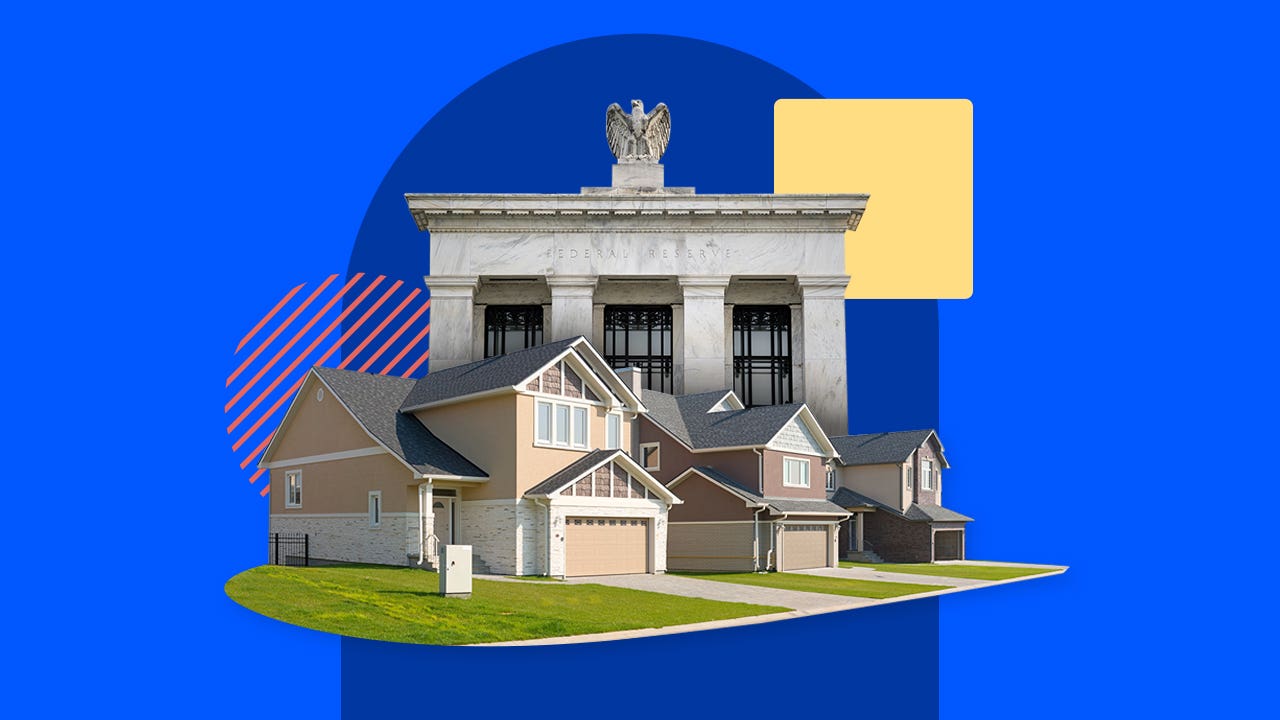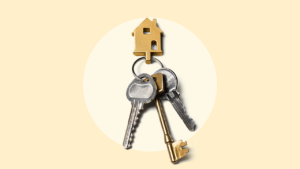How does the Federal Reserve affect mortgages?




The Federal Reserve doesn’t set mortgage rates outright, but its decisions do play a role in the percentages lenders offer would-be homeowners. And even if the Fed keeps its benchmark rate unchanged, mortgage rates can still fluctuate. Here’s how the Fed’s monetary policy affects mortgages — and your ability to buy a home.
At its meeting on Jan. 27-28, the Federal Open Market Committee (FOMC) voted to hold its benchmark interest rate steady. This follows three consecutive meetings at which the Fed cut rates. In its statement, the Fed said that inflation remained slightly elevated and job growth was sluggish, but that the unemployment rate has been stable. These factors encouraged them to take a wait-and-see approach.
“While the Federal Reserve is maintaining interest rates in order to try to bring inflation levels closer to its target, uncertainties surrounding the economy remain elevated,” said Selma Hepp, chief economist for Cotality, in a statement. “The job market remains a sticking point, even though the economy as a whole remains on solid ground. With tariffs continuing to impact pricing on so many consumer products, pressure will remain to find stronger solutions that would help lower the cost of everyday items for families.”
As for mortgage rates, expect them to stay steady, says Mike Fratantoni, senior vice president and chief economist for the Mortgage Bankers Association (MBA).
“MBA’s forecast has been for mortgage rates to remain in a relatively narrow trading range for the foreseeable future, likely remaining between 6 and 6.5% for 30-year conforming loans,” Fratantoni said in a statement. “The news from this meeting does not change our forecast for mortgage rates. We expect that this level of rates will help support a somewhat stronger spring housing market than last year, but not a break-out year.”
Following the announcement, yields on the 10-year Treasury bond stayed relatively unchanged. Fixed-rate mortgages are tied to this yield.
The Fed’s next meeting takes place March 17-18, where it will also release a new summary of economic projections.
How does a Fed rate cut affect mortgages?
The U.S. Federal Reserve sets borrowing costs for shorter-term loans by changing its federal funds rate. This rate dictates how much banks pay each other in interest to borrow funds from their reserves, kept at the Fed on an overnight basis. While this rate isn’t the same as the rate you’ll pay for your mortgage, they are related. As the cost for banks to borrow increases or decreases, the cost for you to borrow tends to follow suit. When the Fed cuts the federal funds rate, it generally encourages lenders to lower interest rates across the board. Similarly, if the Fed raises rates, it’s more likely lenders will do the same.
For example, in 2022 and 2023, the Fed increased this key interest rate to help calm inflation, hikes that made it more costly for Americans to borrow money or take out credit. However, sometimes mortgage rates seem to ignore the Fed. While the Fed cut the rate three times at the end of 2024, mortgage rates remained relatively high, and even increased.
That’s because fixed-rate mortgages — the most popular type of home loan — don’t mirror the federal funds rate; they track the 10-year Treasury yield. When that goes up or down, fixed-rate mortgage rates do, too.
Again, the two rates aren’t exactly the same. Your mortgage rate will be higher than the 10-year yield by an amount known as a spread or margin.
Typically, the gap between the 10-year Treasury yield and the 30-year fixed mortgage rate spans 1.5 to 2 percentage points. For much of 2023 and 2024, the spread grew to 3 percentage points, making mortgages more expensive. The main reason for this was added risk in the marketplace due to rapidly rising rates.
Mortgage rates also move due to:
- Inflation: Generally, when inflation picks up, so do fixed interest rates.
- Supply and demand: When mortgage lenders have too much business, they raise rates to decrease demand. When business is light, they tend to cut rates to attract more customers.
- The secondary mortgage market, where investors buy mortgage-backed securities: Most lenders bundle the mortgages they underwrite and sell them in the secondary marketplace to investors. When investor demand is high, mortgage rates trend a little lower. When investors aren’t buying, rates might rise to attract them.
The Fed also buys and sells debt securities in the financial marketplace. This helps support the flow of credit, which tends to have an overarching impact on mortgage rates.
How the Fed affects adjustable-rate mortgages (ARMs)
While fixed-rate mortgages dominate the U.S. residential financing scene, some Americans prefer adjustable-rate mortgages (ARMs), which have variable interest rates that reset annually or semi-annually. The Fed’s moves can affect them more directly.
More specifically, the rates on ARMs are often tied to the Secured Overnight Financing Rate, or SOFR. Because the Fed’s rate decisions serve as a basis for savings instruments, raising or lowering the fed funds rate can push the SOFR up or down. ARM rates, in turn, go up or down when the rate resets.
All this means that, if the federal funds rate goes up, your ARM rate will increase at the next adjustment.
Key Fed moves that have impacted mortgage rates
In response to the economic effects of COVID-19, the Fed cut the federal funds rate to near zero. While 30-year mortgage rates didn’t fall to the same degree, they did reach historic lows. The average 30-year mortgage rate bottomed out at 2.97 percent in February 2021, according to Bankrate data.
The Fed raised their rate consistently starting in March 2022, as inflation picked up and the U.S. emerged from the pandemic. The federal funds rate reached 5.33 percent in August 2023, where it stayed until the end of September 2024. As the funds rate grew, so did mortgage rates, with the 30-year rate breaching 8 percent in October 2023.
Though the Fed cut its rate three times at the end of 2024 — at its September, October and December meetings, a total of 100 basis points — mortgage rates remained elevated, often averaging above 7 percent.
For much of the first half of 2025, rates hovered between 6.8 percent and 7.1 percent. However, rates dropped leading into the end of the year. The Fed made three cuts in September, October and December, totaling 75 basis points. Rates finished the year around the 6.25% mark and dipped to 6.18% at the start of 2026.
What to consider if you’re getting a mortgage
Regardless of current Federal Reserve policy, the best ways to get the lowest possible mortgage rate are to maintain solid credit, keep your debt low, make as large a down payment as you can and shop around for loan offers.
When comparing rates, look at the APR, not just the interest rate — some lenders advertise low interest rates, but offset them with high fees. Knowing your APR will help you understand your true, all-in cost.
More on the Federal Reserve
Why we ask for feedback Your feedback helps us improve our content and services. It takes less than a minute to complete.
Your responses are anonymous and will only be used for improving our website.





